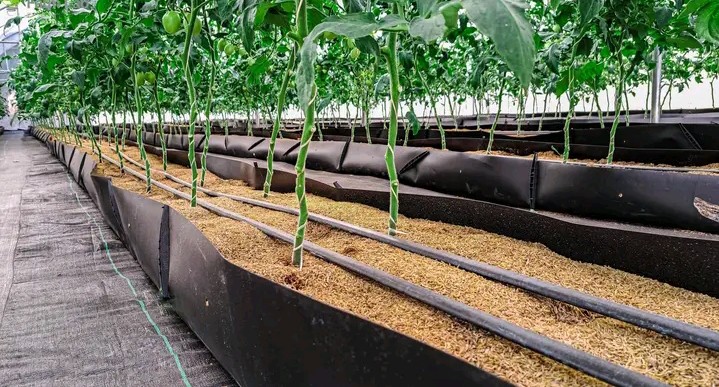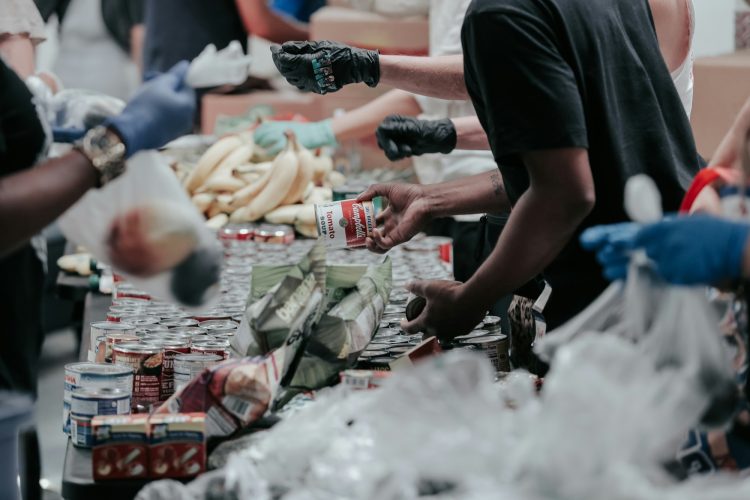TriplePundit • This Nigerian Lab is Farming Without Soil to Rethink Food Security

On a warm morning in Awowo, Nigeria, Babajide Taofeek walked through rows of crops without touching a single patch of soil. In place of farmland, he found peppers and leafy greens suspended in vertical trays, their roots drinking from coco peat and nutrient-rich water. LED lights bathed the greenhouse in a steady glow, simulating daylight even as clouds passed overhead.
For Taofeek, a recent agricultural economics graduate, this was not the future of farming he once imagined. It was better.
“Traditional farming is full of drudgery,” he said. “And with climate change and insecurity, many people no longer want to go to the farm. But here, I saw a way farming could be easier, smarter and still profitable.”
His concerns are not misplaced. According to the African Development Bank, 45 percent of the world’s degraded land is in Africa, where soil erosion, deforestation and overuse are straining smallholder farmers. Nearly two-thirds of arable land in Nigeria is considered degraded, particularly in frontline agricultural zones. Meanwhile, farmer-herder clashes, displacement caused by Boko Haram insurgents in the northeast, and erratic weather patterns are pushing millions toward hunger. In 2020 alone, over 39 million Nigerians faced acute food insecurity, according to the Lagos Food Bank Initiative.
But instead of abandoning farming altogether, a new generation of Nigerian entrepreneurs is rewriting the rules. At the center of this quiet revolution is Soilless Farm Lab, an agricultural technology hub in Awowo, Ogun State, led by biochemist-turned-farmer Samson Ogbole.
The farming hub
Nestled about 30 kilometers (19 miles) from Abeokuta, the state’s capital city, Soilless Farm Lab looks more like a research campus than a farm. Spread across 120 acres, its greenhouses and open fields are flanked by offices, labs and training centers. Inside, rows of vegetables grow in stacked troughs filled with rice bran and sawdust. Automated irrigation systems release precise droplets of water mixed with nutrients, while sensors track humidity, oxygen and light.
This model of controlled environment agriculture, a practice gaining global traction that involves growing crops in an enclosed space under controlled conditions, combines hydroponics and vertical farming. It uses up to 90 percent less water than conventional farming, eliminates the need for chemical pesticides, and ensures crops can grow year-round — a stark contrast to rain-fed agriculture at the mercy of droughts and floods.
“Seasonality of crops is a big issue in Nigeria,” said Emmanuel Atolagbe, the farm’s manager and agronomist. “Hunger is not seasonal, so we need systems that can produce food continuously.”
The farm launched in 2019, and what began as an experiment is now one of Nigeria’s pioneering agricultural technology ventures, blending business and social impact. Since its inception, Soilless Farm Lab has trained more than 10,000 young people across Nigeria in hydroponics and agricultural entrepreneurship. The training is free, backed by partners like the Mastercard Foundation, and participants learn not only soilless farming but also marketing, branding and business management.
Youth finding new pathways
For Taofeek, three months at Soilless Farm Lab opened doors he never expected. After completing his training in January, he joined Orange Farm Technology Limited in Abia State, Nigeria, with his new skills in commercial hydroponic production.
“Now my colleagues and I are even discussing how we can train robots to do farm work,” he said. “Farming takes time, but with technology, we can make it more efficient.”
Another trainee, Adeshina Ajibade, was curious about agriculture but unsure how to start. He enrolled at Soilless Farm Lab in 2023 after a friend’s recommendation.
“I wanted to learn something different from my course of study,” said Ajibade, who studying information science at the time. “I didn’t have land, but here I saw how farming could be possible without it.”
Ajibade has not yet launched his own farm, but he is applying the branding and marketing skills gained at the lab in his current work as a graphic designer. For him, the experience broadened what agriculture could mean in modern Nigeria.
Promises and pitfalls
Experts say controlled environment agriculture practices like this show significant promise in Nigeria. The approach offers resilience against some of the biggest threats to food security by reducing land dependency, cutting water use and making farming possible in urban areas.
“It is farming that can even be practiced in a backyard,” said Ahmad Ladan Ala, an agricultural economics professor at Usmanu Danfodiyo University in Sokoto. “It reduces fertilizer use, avoids harming microorganisms in the soil and can shield farmers from insecurity in open fields.”
But challenges remain. Setting up indoor systems requires investment in greenhouses, pumps, solar panels and sensors. Electricity is needed to power lights and irrigation, which can drive up costs in a country with frequent power cuts.
“Operating and maintaining soilless systems requires specialized knowledge,” said Oyewale Abdul-Rasheed, crop production expert at the Federal University of Technology, Minna. “Without training, small-scale farmers may find it difficult to adapt.”
This cost barrier means most beneficiaries are educated youth seeking entrepreneurial opportunities, rather than subsistence farmers struggling in rural areas. While donors like the Mastercard Foundation subsidize training at places like Soilless Farm Lab, scaling beyond early adopters will depend on financing models that lower the cost of starting a farm.
A local experiment with global relevance
Despite these hurdles, Soilless Farm Lab’s founder Ogbole believes Nigeria cannot afford to ignore soilless farming. With the population expected to exceed 400 million by 2050, the country will need innovative approaches to feed its people. Soilless agriculture is not a luxury but a necessity, he argues.
“Food insecurity is already here,” Ogbole said. “Soil is under pressure, water is scarce, and young people don’t want to farm the old way. If we don’t innovate, hunger will only worsen.”
Soilless Farm Lab is already gaining international attention. Its model mirrors practices in Singapore, the United Arab Emirates, and Kenya, where controlled environment agriculture is helping cities grow food closer to consumers, reducing transport costs and emissions. By embedding training and entrepreneurship, Ogbole’s approach positions Nigeria as a potential leader in climate-smart agriculture.
And the demand is real. In Nigeria’s cities, middle-class households are increasingly seeking fresh, pesticide-free produce. Restaurants and hotels are willing to pay a premium for a reliable supply. This market opportunity, combined with youth unemployment rates above 40 percent, creates fertile ground for scaling.
Still, experts caution against seeing this style of agriculture as a silver bullet. It can complement, but not entirely replace, soil-based farming. Its sustainability depends on renewable energy inputs, localized supply chains for equipment and policy support to reduce costs.
A quiet revolution
Back in Abia State, Taofeek sees himself as part of a movement reimagining what agriculture can mean for his generation. “Before, I thought farming was just hoes and cutlasses,” he said. “Now I see farming as technology. It’s something young people like me can be proud of.”
For Ogbole, the vision goes beyond his farm in Awowo. “We are training people to see farming as a business, not a burden,” he said. “If young people lead this transformation, Nigeria can move from food insecurity to food abundance.”
Soilless farming alone will not solve Nigeria’s food crisis. But in a country where insecurity, land degradation, and climate shocks are converging, it represents a hopeful frontier. One where technology, youth empowerment and business innovation meet.



Post Comment